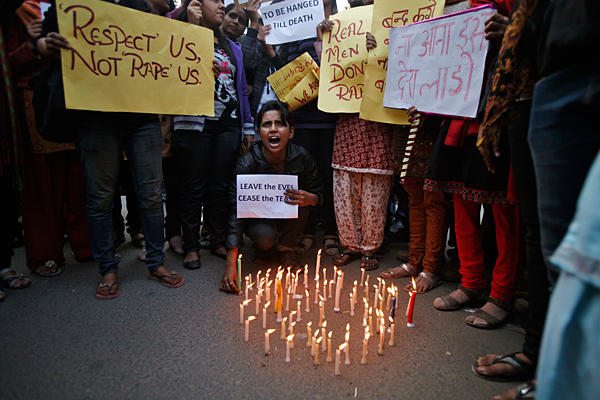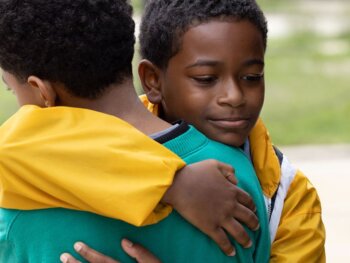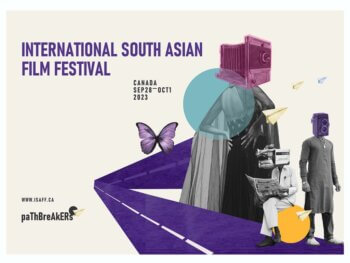'A traveler's heaven and a woman's hell' is a phrase Michaela Cross attributes to India, while she recounts her spine-chilling memories of constant sexual harassment she faced on a trip to the country. Her tale has received mass worldwide attention, in the wake of yet another horrific gang rape of a female student in India – this time having taken place in Mumbai. This victim, unlike her tragic Delhi counterpart, is expected to fully recover.
A student at the University of Chicago, Cross stayed in India as part of her educational tour under her South Asian Studies major. While she expresses her love for the rich culture and diversity that India has to offer for its tourists, she gives a gut-wrenching account of the months of all the staring, groping, stalking, potential rape attacks, and witnessing a man touch himself in public while looking at her that she has had to endure.
Cross was diagnosed with Post-Traumatic Stress Disorder upon her return to Chicago, a condition so severe that she has had to take a leave of absence. She is unable to continue on with her classes, with her everyday life.
The world, and India in particular, are still in shock of the tragic gang-rape of a 23 year old woman in Delhi in December 2012. She died of her horrific internal injuries in Singapore a couple of weeks after the attack.
Last Thursday, India shook with news of yet another attack, this time in Mumbai. A 22 year old female journalist was raped by five men, while her male colleague was beaten and tied up. All five men have already been arrested, a few having appeared in courts already. Owing to extensive media coverage, and tremendous public pressure since last December, we may see swift justice in this case.
While it is obvious that strict laws need to be implemented, and strict measures taken against violence against women in all of South Asia, let’s look at this problem in a global context. Comparing rape statistics around the world, India does not come even in the top 10. The nations that are high in rape(reported) statistics are Trinidad and Tobago, Sweden, New Zealand, Zimbabwe, Belgium, United Kingdom and the United States.
In United States, for every 100,000 women, there are about 28 rape victims. The Department of Justice and the Centers for Disease Control and Prevention concluded, based on various studies done, that 1 in every 6 women in United States has experienced a completed or attempted sexual assault, tantamount to rape, more than half of these women were under 18 when attacked, and surprisingly, only 16% of all the rape cases get reported.
Canadian statistics are worse, with only 6% of all raped women ever reporting the heinous crime. Overall, a staggering 25% of the female population in North America will be sexually assaulted atleast once in her lifetime.
Here is a thinker. Michaela Cross faced harassment by unknown men, men who were strangers to her, who could not care less what happened to her as a result of their revolting behavior. The gang rape victims of Delhi and Mumbai were attacked by unknown assailants.
In Canada and United States, however, 80% of the assailants are friends or family of the victim. These are men the victims had faith it or trusted in. While a change in laws and conviction rate is of absolute necessity in India, now more than ever before, the western world and media perhaps needs to take a step back, and look at the problem in a global context. Perhaps we need to look at the reasons behind such low crime reporting rate in North America.
India, after all, is a developing nation, with many living under the poverty line, and where a deep-rooted patriarchy results in many vices(rape being one of them). But what is it, in the welfare state of Canada, that prevents more raped victims from coming forward with the attack done on them?
17 year old Rehtaeh Parsons took her own life, after social mocking and humiliation she had to endure from her peers, following digital circulation of images of her sexual assault by four boys (when she was only 15). She was not Indian, she was a Nova Scotia native.
Self-reflection is the need of the hour here. Widespread public outrage and pressure in India foreshadows change in laws, and hopefully better conviction rates. What have we, as North Americans, done lately to bring changes in our society, in our legislature? Before you criticize a poor, developing nation, ask yourself, what have you done for your own community?
Source:
http://ireport.cnn.com/docs/DOC-1023053
http://www.911rape.org/facts-quotes/statistics
http://www.sexassault.ca/statistics.htm
http://www.cbc.ca/news/canada/nova-scotia/story/2013/08/22/ns-rehataeh-canning-threat.html
http://www.ndtv.com/blog/show/live-coverage-anger-over-mumbai-gang-rape-case-409344?curl=1377269573
Image: http://www.cnn.com/2012/12/30/world/asia/misogyny-india
Farah Khan
Author
Farah joined ANOKHI LIFE while finishing up her degree in English Literature and Writing at the University of Toronto. Her position since then has expanded across all departments, everything from office administration and corporate affairs, to ANOKHI's online presence and events. . .














































































































